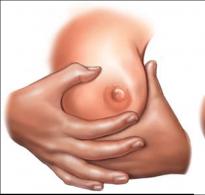What expectorants are recommended for use during pregnancy. Which expectorants are possible during pregnancy and which are not For pregnant women, what helps well with phlegm
Coughing in pregnant women can lead to increased uterine tone and the development of gestosis, which is characterized by severe swelling. The consequence of this may be a miscarriage or severe pathologies in the child. To eliminate this symptom, expectorant medications are required. They are prescribed taking into account the duration of pregnancy. Your doctor will advise you on which expectorants you can take during pregnancy. Self-treatment is not recommended due to the strong side effects of such medications.
Are there any restrictions for pregnant women?
Research into the possibility of treating pregnant women with certain expectorants is not conducted for ethical reasons. A conclusion about the safety of the product is made after studying its composition and instructions for use. If components have a teratogenic or mutagenic effect, or affect the condition of a pregnant woman, this is indicated in the manual. In addition, doctors collect information about the results of using a certain drug in patients.
Regarding the use of expectorant medications by pregnant women, it is widely believed that drugs used in the treatment of children under one year of age can be used for their treatment. This assumption is incorrect, since the newborn baby has already formed, and the active components of the drugs will not affect this in any way. However, there is a possibility that they may disrupt the normal course of pregnancy.
If a pregnant woman has a dry cough, expectorants should only be used in the 2nd and 3rd trimester. Since they cause adverse reactions that can affect the development of the fetus, taking such medications in the early stages is not allowed.
If it is necessary to treat a pregnant woman with expectorants, only drugs that do not affect the respiratory center are prescribed. Treatment should be as short as possible.
Expectorant medications acceptable for the treatment of pregnant women should not contain codeine, since, in addition to affecting breathing, it causes a delay in the formation of bone tissue. When choosing cough syrup, you need to make sure that it does not contain alcohol.
Traditional medicine, contrary to popular belief, can interfere with the normal course of pregnancy. When deciding to take herbal preparations, you should become familiar with the effects of each ingredient on the body of the expectant mother and fetus.
If a doctor has prescribed expectorants for a pregnant woman, she should not refuse them unless the instructions contain clear contraindications. An untreated cough can lead to impaired fetal formation and hypoxia.
Medications
Pregnant women can get rid of dry cough by inhalation or rubbing. Drinking tea is allowed. If the cough is wet, take syrups or tablets. Medicines that allow pregnant women to cure cough do not act immediately, but are absolutely safe for the fetus. It is allowed to use drugs containing only herbal ingredients. Before starting treatment, it is necessary to make sure that the patient is not allergic to the herbs contained in them. This is the only cough treatment method acceptable in the first trimester.
Sometimes, in the early stages, Mucaltin is prescribed for a wet cough, considering it safe. There are no special instructions in the instructions for the drug, but it must be taken into account that the marshmallow it contains is prohibited from being consumed during the first months of pregnancy. Expectorant drugs in the first trimester are prescribed only when there is a threat to the mother’s life or in a situation where other methods have not been effective.
In the second and third trimester, the list of medications allowed for pregnant women is much more extensive. Bromhexine, Mucaltin, Ambroxol, Stoptussin are used to remove sputum. For bronchitis, drink syrups with herbal extracts Doctor Mom and Gedelix. They are well tolerated, but they must be prescribed by a doctor. Cough expectorants for pregnant women are prescribed in minimal dosages.

To relieve cough, pregnant women should gargle with antiseptics (Miramistin, Furacilin) to remove accumulated pathogens present in the mucus.
ethnoscience
Traditional medicine for pregnant women can be dangerous, especially in the first 12 weeks. Many of them are prohibited from being taken at this time due to the threat of miscarriage or bleeding in the expectant mother. Ready-made pharmacy breast preparations that stimulate coughing are strictly contraindicated, since they contain herbs that are not recommended for pregnant women to consume.
Home-prepared medications should be prescribed by your doctor. They are prepared according to a precise recipe. It is prohibited to use products containing the following herbal ingredients during pregnancy:

- ivy;
- licorice;
- aloe;
- coltsfoot;
- raspberry leaves;
- anise.
These plants can cause miscarriage because they affect the tone of the uterus and hormonal levels. Calamus, plantain, string, tansy, and rhubarb have a negative effect on the fruit. Cough in pregnant women will go away without side effects if you use blackberries, viburnum, blueberries, lingonberries, and raspberries to prepare medicinal preparations. One should stick to the dosage recommended by the doctor as they also have side effects.
- rinse solutions should be cooled before use, otherwise a burn to the oral mucosa is possible;
- the steam emanating during inhalation should not be hot, as it can burn the respiratory tract;
- Steam inhalation is not used if a pregnant woman has a cough accompanied by a high fever.
Pregnant women can use honey for expectoration only if they are not allergic to the product. Recommended dosage is 1 teaspoon three times a day. The most popular remedy is a mixture of honey and milk. You can add a little butter to them. Drink this remedy before bed.

A suffocating cough will go away if you drink onion decoction. 1 onion requires 250 ml of milk. After boiling for 10 minutes, add a tablespoon of honey to the mixture. The product is quite effective and can cure cough in pregnant women in a few days. Take it 1 tbsp. spoon before eating.
To make it easier to cough up, pregnant women can drink black radish juice mixed with sugar. The mixture should sit for 12 hours, after which it is ready for use. Drink the product every 3 hours for 2-3 days. To prepare such a preparation, the radish is grated or the middle is cut out of it, and honey is poured in instead.
Conclusion
Expectorants can be used by pregnant women only as prescribed by a doctor. The effect of drugs with such an effect on the woman’s body and fetus is always indicated in the instructions for use. Before prescribing such drugs, it is necessary to ensure that the patient has no allergies or other contraindications.
Each representative of the fair sex, being in an interesting position, must, of course, take care of her health and the development of the fetus in the womb. Indeed, now the woman is also responsible for the baby. If earlier, without any doubt, when she had a cold, she could use improvised medications, but now the situation is somewhat different. First of all, experts recommend consulting with a doctor who directly monitors the progress of pregnancy, and only then starting treatment. So, which expectorants can be used during pregnancy, and which are best left for the postpartum period? This will be discussed in this article.
Mechanism of actionFirst of all, let's talk about how expectorants work during pregnancy. As you know, mucus is continuously produced in the bronchi of a healthy person, the purpose of which is to cleanse the lungs of dust particles and dead cells. When you have a cold, the amount of mucus increases sharply, moreover, its character also changes. Due to the fact that the mucus becomes viscous, the bronchi gradually become clogged, and the most favorable conditions for the development and reproduction of microbes are created in them, and breathing, accordingly, becomes more difficult. From the inside, these organs are covered with a thin layer of cilia, which direct mucus from the bronchi. However, due to the increase in its number, the eyelashes themselves stick together, which certainly complicates their work. Thus, almost all expectorants during pregnancy are aimed at liquefying this substance so that the work of the main organs can be resumed. But, as stated earlier, not all medications can be taken by a woman during this period.
Expectorant during pregnancy. Approved drugs

Among all the available medications when carrying a fetus in the womb, the following are allowed: Bromhexine, Guaifenesin, Mukaltin.
Prohibited means
Experts recommend choosing expectorants with extreme caution during pregnancy and carefully studying their composition. It is important to note that the list of prohibited substances, as a rule, contains drugs that are completely contraindicated for a future woman in labor, but a woman is not in a position to use them without fear for her health. These are anise, ivy, thyme, oregano, plantain, coltsfoot, licorice, violet, etc. The list can be continued for a very long time. On the other hand, all of the above herbs are often included in anti-cold medications sold in pharmacies and prescribed to pregnant women on the recommendation of a doctor. However, in any case, the expectorant collection should be used only after consultation with a specialist.

The thing is that almost all of the above-mentioned herbs have a very toxic effect on the fetus due to their high content of alkaloids. Thus, some types of plants even cause spontaneous miscarriage, particularly in the early stages of pregnancy. For example, science knows the fact that animals in nature, including domestic cattle, lose fruit when consuming seemingly harmless pine buds. And in medicine, this remedy is quite widespread and is prescribed for colds to non-pregnant women.
Pregnancy is a wonderful state when a woman undergoes a lot of pleasant emotional and physiological changes. But, at the same time, from the first weeks it places a burden of great responsibility on the expectant mother: you need to carefully monitor your diet and lifestyle, and under no circumstances should you catch a cold or get sick.
And if you get sick, you have to treat yourself exclusively with safe medications. It is advisable that they relate to recipes from traditional medicine, which minimize the risk of possible negative effects on the fetus. Especially when it comes to all kinds of expectorant medications, the effects of which on the fetus have not been definitively proven.
Why can’t you take regular mucolytic drugs during pregnancy?
Mucolytic drugs are strictly prohibited in the first trimester of pregnancy, when all systems and organs of the embryo are formed. At this time, such drugs can cause irreparable harm to the fetus, so their use is completely excluded. In later stages, the attending physician may authorize treatment with chemical expectorants, but only if there are extremely compelling reasons for this. At the same time, one should not exclude the possibility of a negative impact on the child in the womb.
Under no circumstances should drugs be prescribed during pregnancy that are similar in their active action to morphine, as well as centrally acting drugs that disrupt the respiratory cycle. The only acceptable drugs in official medicine for expectant mothers are only those drugs that only slightly reduce respiratory functions.
The optimal choice would be all kinds of herbal medicines. For example, any decoctions, infusions and syrups from medicinal herbs and complex mixtures: plantain, licorice root, viburnum, chamomile, lemon balm, coltsfoot, mint, etc. The only thing you should remember is that before using these products it is necessary to conduct a test for sensitivity, in order to find out in advance about the presence of possible individual intolerance to the herbal medicine.
Why should you not refuse treatment for coughs and colds during pregnancy?
It is also impossible not to treat a cough. If you start a respiratory disease, it can go lower and go to the bronchi. And this, in turn, threatens not with a common cold, but with an inflammatory process in the lungs or, even worse, ending in asthma. Moreover, when a strong cough occurs, uterine tone increases significantly, and this threatens very serious consequences for the fetus. In particular, the risk of premature birth or miscarriage increases.
As a result, cough must also be treated correctly - without using potent drugs that stimulate increased respiratory activity. Especially if the properties of the drug regarding penetration/non-penetration through the placental barrier have not been proven.
How to treat during pregnancy?
The simplest, centuries-tested folk remedies are the choice of pregnant women. Yes, in some cases they do not act as quickly as the drugs of official medicine, but they are quite capable of getting rid of frequent exhausting coughs and phlegm that interferes with breathing. It is acceptable, for example, to drink frequently and generously of warm drinks: tea with lemon and honey, warm milk with a small amount of soda, linden infusion.
For viscous sputum, it is advisable to regularly carry out inhalations to help thin the sputum. Essential oils of thyme, thyme and camphor are especially suitable for them. In this case, a mucous decoction of marshmallow roots also has a pronounced therapeutic effect. Usually, when combining the first and second methods of treatment, relief comes quite quickly, since the sputum easily liquefies and becomes easier to cough up.
Another good way to deal with a non-productive cough that does not help clear up mucus is to gargle frequently. Contrary to popular belief, they help to cope not only with an irritated and inflamed throat, but also to alleviate the condition of a pregnant woman when she cannot clear her throat properly. Such rinses should be carried out at least eight times a day, always after meals. You can add a little saline solution, soda or apple cider vinegar to the herbal decoctions that will be used for rinsing.
The best expectorants that are safe for pregnant women
The best expectorant that you can take with peace of mind while expecting a baby is considered dried figs brewed in milk. To prepare a healing and tasty infusion, dried fruits need to be boiled in milk for at least half an hour until it acquires a characteristic brownish color. The tasty medicine should be consumed warm, at least three to four times a day, regardless of meals.
Another favorite in the long list of herbal expectorants is the common onion. To prepare a medicine based on it, you need to peel two or three onions, chop them finely, add a few tablespoons of sugar, two glasses of water and simmer over low heat for at least an hour. Strain the slightly cooled mixture and add half a glass of honey. Take a tablespoon after each meal.
This also helps with effective and faster removal of sputum. recipe: prepare liquid mashed potatoes, add milk, butter and garlic, squeezed through a garlic press. Stir the mixture thoroughly to distribute all ingredients evenly. Use the mixture immediately after preparation, before it cools down.
A painful cough without mucus discharge brings a lot of unpleasant, sometimes extremely painful, sensations, so you should never turn a blind eye to it. Especially when a woman begins to bear responsibility not only for herself, but also for the small developing lump in her stomach.
Colds are not uncommon during pregnancy. When carrying a baby, a woman's immunity weakens and her susceptibility to viruses and bacteria increases. In addition, even the most common diseases can develop complications. Treatment options for this condition are very limited.
Most often, a woman develops inflammation in the nose and paranasal sinuses, throat, and bronchi. These processes manifest themselves as a runny nose, headaches, sore throat and sore throat, and cough.
Cough
Cough is a common companion to most colds. It is not necessary to have bronchitis or pneumonia for this unpleasant symptom to appear.
- When you have a runny nose, a cough develops due to nasal mucus getting into the back of the throat.
- When the throat and trachea become inflamed, a painful cough will develop due to drying and swelling of the mucous membranes.
- With bronchitis and pneumonia, cough is caused by the accumulation of large amounts of sputum.
During pregnancy, this symptom is not just difficult to tolerate. It can significantly worsen a woman’s condition, causing vomiting. In addition, with a painful cough, the tone of the uterus increases, which is manifested by discomfort in the abdominal area and pain.
An untreated cough leads to stagnation of sputum, which means an increased risk of developing bronchitis and pneumonia.
Cough treatment

You can combat this symptom in different ways. The choice of medication depends on the type of cough - dry or wet, reflex or associated with inflammation. Most often, drugs that improve sputum discharge are used, but in some cases it would be appropriate to prescribe drugs that suppress the activity of the cough center.
Medicines for the treatment of cough are divided into the following groups:
- Increasing the production of sputum, thinning it and improving discharge - expectorants. These include marshmallow and licorice root, bromhexine, ambroxol, acetylcysteine and carbocysteine.
- Dilate the bronchi by eliminating their spasm - bronchodilators. These medications are effective for allergic cough and bronchial asthma. The most commonly used bronchodilator is salbutamol.
- Suppressive cough. These are drugs that inhibit the activity of the cough center. Used only for dry cough. One of the most used antitussive drugs is Sinekod.
Expectorants and antitussives during pregnancy
During pregnancy, most medications are prohibited for use due to potential harm to the child and the expectant mother. Some drugs can only be used in a certain trimester. As a rule, no research was carried out on the rest. And only a few drugs are approved for use while pregnant, but only after assessing the benefits for the mother and the likely risk for the baby. These medications are prescribed by a doctor.
Considering the over-the-counter sale of most drugs in pharmacies, expectant mothers first of all need to know the medications that should not be taken during pregnancy.
Expectorants prohibited during pregnancy

This is a fairly large group of drugs. The ban on the use of these drugs is associated with a proven negative effect on the development of the child or on the condition of the mother.
The following expectorants are prohibited during pregnancy:
- Licorice root and combination preparations containing it. Licorice root can influence the exchange of female sex hormones - estrogens, which is unacceptable during pregnancy.
- Breast preparations 2 and 4. They contain licorice root.
- Thyme herb.
- Shoots of wild rosemary.
- Thermopsis grass. It is part of the well-known and long-used drug Cough Tablets.
- Coltsfoot leaves.
- Expectorant collection (Expectorant species).
- Askoril expektorant. A combination drug including bromhexine, salbutamol, menthol and guaifenesin.
- Pertussin.
Expectorants prohibited in the first trimester

The first trimester is the most significant period in a child's development. It is in the first 12 weeks that all organs and systems are formed, and even the slightest impact can lead to serious consequences in the future.
In the first trimester the following are prohibited:
- Bromhexine.
- Ambroxol. This drug is most often prescribed as an expectorant. In pharmacies it is sold under different names - Lazolvan, Ambrobene, Ambrotard, Flavamed, Mukolvan.
- Carbocysteine. This active substance is included in such drugs as Fluditek, Langes, Mucolic.
- Instaril. A drug that contains bromhexine and salbutamol. Prescribed for coughs that are accompanied by bronchospasm.
- Sinekod. This is an antitussive drug prescribed for dry, debilitating cough. Not used in case of sputum discharge or in combination with expectorants.
Starting from the 13th week, drugs in this group are taken only as prescribed by a doctor.
This group of drugs has not been proven to have a harmful effect on the body of a child or woman. But clinical trials confirming their safety have not been carried out by the manufacturers either. Sometimes doctors prescribe such medications during pregnancy if other medications are ineffective. Drugs with unproven safety should be avoided whenever possible.
These include:
- Marshmallow root, combination preparations and herbal preparations with its participation (Mukaltin, Alteika).
- Gedelix.
- Bronchicum.
- Overslept.
- Acetylcysteine. This substance is part of the ACC and ACC long preparations. Due to the lack of clinical trials during pregnancy, it is prescribed according to strict indications.
- Gerbion. There are various options for expectorants - plantain syrup, ivy, Icelandic moss. Can only be taken under medical supervision.
- Erespal. No negative effects on pregnancy have been identified in humans, but in animal experiments the incidence of fetal deformities increased when Erespal was prescribed.
Medicines allowed during pregnancy

This is the smallest group of drugs. It includes homeopathic remedies and some herbal remedies.
The following expectorants are allowed during pregnancy:
- Bronchalis hel. Like other Heel drugs, it is approved at any stage of pregnancy.
- Dr. Theiss cough syrup. Contains plantain extract, which has an expectorant effect.
- Sinupret. The drug, which has an anti-inflammatory and anti-edematous effect, is indirectly able to relieve hacking cough by improving bronchial patency. Indicated for cough associated with postnasal drip.
- Tonsilgon N. Like Sinupret, it has an indirect antitussive effect. It helps well with coughs associated with inflammatory processes in the pharynx and trachea.
Other methods of treating cough in pregnant women
Due to the limited possibilities of drug therapy during pregnancy, the basis of cough treatment is the organization of the correct microclimate in the room, drinking plenty of fluids, inhalation, massage and positional drainage. In addition, traditional methods of treatment are widely used.
Microclimate
The room in which a pregnant woman is located must be ventilated as often as possible. Fresh air makes breathing easier and reduces coughing, while dust and other particles provoke it.
Adequate air humidification also helps to reduce or completely eliminate this unpleasant symptom.
Drinking plenty of fluids and inhaling
Drinking plenty of warm fluids is an excellent antitussive and expectorant. It helps moisturize the mucous membranes and dilute viscous sputum, facilitating its removal. Pregnant women are recommended to drink green tea, compotes and fruit drinks, heated alkaline water, and milk.
Inhalations also help remove sputum. Both regular inhalers and nebulizers are suitable for these purposes. Borjomi or 0.9% sodium chloride solution (saline) can be used as an expectorant.
Vibration massage and postural drainage

Light tapping massage with your fingertips or the edge of your palm along the intercostal spaces improves the discharge of viscous sputum. It should be performed several times a day.
Postural drainage also has a good effect - coughing in a certain body position, which improves the discharge of sputum.
Traditional methods of treatment
During pregnancy, folk remedies should be used with caution. Most herbal products are prohibited in this state.
Warm milk with honey, soda and cocoa butter has a good expectorant effect. You can also consume it with alkaline water.
Chamomile tea is allowed among herbal decoctions during pregnancy - both for drinking and for inhalation.
During pregnancy, the female body becomes more vulnerable and susceptible to colds. A cough at this time is undesirable, it can lead to miscarriage, so you need to get rid of it. But not all medications are allowed for pregnant women—many are contraindicated. Which expectorants are allowed to be taken during pregnancy and which are not? This article will be about this.
The dangers of coughing attacks during pregnancy
A cough is a consequence of a cold caused by an infection or virus. It may be accompanied by a large amount of sputum produced. To speed up its discharge and avoid stagnation, it is necessary to take medications. Properly selected therapy will cure cough faster.
What is the danger of coughing during pregnancy? The following complications may arise from it:
- A mild cold develops into inflammation of the bronchi or lungs. They cannot be treated without antibiotics.
The use of drugs in this group is dangerous for the intrauterine development of the child. In the later stages, they can cause miscarriage or premature birth.
- The infection in a woman’s body is transmitted to the fetus, which is fraught with defects.
- During coughing, the tone of the uterine muscles is increased, and there is a risk of miscarriage.
- Under pressure, placental abruption and miscarriage can occur.
- In the initial stages, when pregnant women have problems from toxicosis, coughing aggravates the situation. It increases nausea and causes vomiting. Because of this, the woman’s condition worsens.
Therefore, coughing during pregnancy is not only unpleasant, but also dangerous for the unborn child. It is necessary to get rid of sputum in the lungs and bronchi as soon as possible. If a cough occurs, a woman should consult a doctor. Only he can prescribe a safe expectorant during pregnancy. You cannot take any medications on your own; they can harm the child.
What expectorants can pregnant women use at different stages?
To understand how and with what to treat a cough, you need to know what the risks are in different trimesters of pregnancy from the cough itself and from the medications taken.
1st trimester
 In the 1st trimester of pregnancy, infections are especially dangerous. During this period, the embryo is just beginning to develop. All organs and systems are born in him. If at this time an infection enters his body, it can disrupt something in him, and then the child will be born with pathology or defects.
In the 1st trimester of pregnancy, infections are especially dangerous. During this period, the embryo is just beginning to develop. All organs and systems are born in him. If at this time an infection enters his body, it can disrupt something in him, and then the child will be born with pathology or defects.
Only after the 10th week of pregnancy do such risks decrease. But when coughing, the uterine tone is increased, resulting in a disruption of the blood supply to the fetus. He experiences oxygen starvation and development slows down. At this time, strong expectorants are prohibited. You can remove phlegm during pregnancy using natural remedies and physical procedures.
If the cough is caused by throat hyperemia, it can be removed by rinsing with soda or salt. Doctor Mom lozenges are made with natural ingredients and are suitable during pregnancy.
If there is no toxicosis with nausea, you can drink warm milk with honey, butter and soda. Add 1 tsp per glass of milk. honey, 0.5 tsp. soda and a small piece of butter. The product relieves dry cough well. You should drink it at night before going to bed, after which you should wrap yourself well.
Herbal teas help a lot. Use linden, chamomile, sage, plantain. You can drink them in large quantities throughout the day. Among medicinal preparations, syrups Gerbion, Doctor Mom, Marshmallow Root, Doctor Theis and others are allowed.
Mucolytic drugs are not recommended during this period, since they have a bad effect on the fetus. You cannot take Ambroxol, Bromhexine, Ambrobene. But if a woman becomes too ill and needs effective means to remove phlegm, the doctor can choose an expectorant for pregnant women with minimal side effects.
It could be Mukaltin. It contains marshmallow root, which promotes active expectoration of mucus and reduces spasms in the bronchi. Or Bronchicum based on thyme, which reduces sore throat.
Their side effects include dyspeptic disorders, so they are not prescribed to women with gastric diseases.
2nd trimester
This period is the most calm and favorable. The fetus is already fully formed and is growing, gaining weight. It is reliably protected by the placenta. Thanks to it, viral infections do not affect the child, as well as medications.
 At this time, coughing is less dangerous. But, despite this, you cannot self-medicate. At this time, the child develops the nervous, endocrine and skeletal systems. Medicines taken without consulting a doctor can harm the fetus.
At this time, coughing is less dangerous. But, despite this, you cannot self-medicate. At this time, the child develops the nervous, endocrine and skeletal systems. Medicines taken without consulting a doctor can harm the fetus.
For severe cough during this period, mucolytics are allowed. They are also selected by a gynecologist, because some of them include pregnancy as contraindications.
Regardless of the period of gestation, it is prohibited to take cough medications that act on the breathing center located in the brain. They have narcotic properties and are toxic to the fetus. These include Solpadeine, Nurofen Plus, Codeine and others. It is allowed to take Sinekod, Okseladin, Stoptussin and others. The drugs are taken in short courses and combined with herbal medicine.
3rd trimester
Cough in the 3rd trimester of pregnancy is treated in the same way as in the previous period. At this time, the fetus is already fully formed and viable.
But even during this period, a woman needs to take her health seriously. Infectious attacks on the placenta lead to its aging and drugs can penetrate through it. And this can be disastrous for a child.
The appearance of a severe cough in recent months can cause complications:
- There is a risk of giving birth prematurely.
- The functioning of the female mammary glands may be disrupted, and after childbirth there may be no milk.
- The placenta may detach and early leakage of amniotic fluid may occur.
To avoid all this, you need to avoid hypothermia and colds that cause coughing.
ethnoscience
 Folk remedies will help you expectorate phlegm during pregnancy. This is facilitated by the use of medicinal herbs, the properties of which have been known to people since ancient times. But they must be used with caution, after consulting a doctor before doing so. Some herbs are very strong and can affect the fetus:
Folk remedies will help you expectorate phlegm during pregnancy. This is facilitated by the use of medicinal herbs, the properties of which have been known to people since ancient times. But they must be used with caution, after consulting a doctor before doing so. Some herbs are very strong and can affect the fetus:
- Coltsfoot is very popular. But it is contraindicated to use during pregnancy; the herb can cause miscarriage. The same goes for Elecampane.
- Marshmallow root is contraindicated in the initial period, then it can be used, but with caution. Not only the roots, but also the stems and seeds of the plant have healing properties. To prepare the medicine, pour 15 g of raw material into half a liter of cold water and leave for 24 hours.
- Radish juice with honey or sugar helps with coughs and has no side effects. To prepare the product, you need to wash a medium-sized radish, cut out the middle and fill the hole with sugar or honey. Leave to infuse in a warm place. The product is ready when the sugar has completely dissolved and the honey has become liquid. Drink a spoon 3 times a day.
- It is useful to use viburnum berries. They are rich in vitamins, which is very important for the body of a pregnant woman. To do this, pour a liter of boiling water over a glass of berries, boil and cool. Add 3 tablespoons of honey and drink 100 ml at a time three times a day.
- It’s good to prepare viburnum for the winter without heat treatment. To do this, sprinkle fresh viburnum berries with sugar and place tightly in a jar. This remedy is useful for the whole family, especially in winter, when there are no vitamins. It will protect a pregnant woman from colds and coughs, and replenish the lack of vitamins.
Various means can be used to cough up mucus during pregnancy. Now they are produced in sufficient quantities. But the doctor must choose them, taking into account all the risks and side effects.






